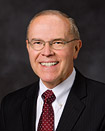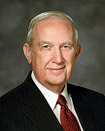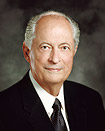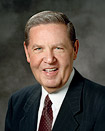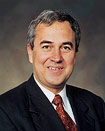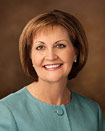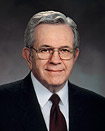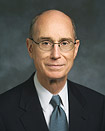This entry is part of my general conference application series.
See Others as They May Become, by Thomas S. Monson
President, Church of Jesus Christ of Latter-day Saints

What a team the first presidency is! President Uchtdorf talks about
airplanes (what else?) but it's President Eyring who titles his talk "
Help Them Aim High." President Eyring talks about helping our children (and others) rise to their potential by seeing them as they can be and encouraging them, but it's President Monson whose talk is "See Others as They May Become." This cohesiveness/connection isn't a big thing, but I thought it was great!
I became increasingly disappointed in myself as I read President Monson's talk: I think I've forgotten to look forward and spend too much time looking back.
Here's what I mean. Much of my non-work time is spent with children—my own children, or children at church through my work in cub scouts and primary. These interactions include many opportunities to address bad behavior as I try to model good behavior. I think that when I confront my children regarding some mistake they've made, I see them only in light of their error and not often enough as they really are and can become.
President Monson shared a story of a successful missionary who was successful, in part, because he pictured those he spoke to in the white clothes of baptism—regardless of their present circumstance. This philosophy is not new to me because I used it as a missionary myself! In fact, I also pictured my sweet girlfriend (now wife) in white while we were dating, but the white was white of a temple wedding, not baptism! (You can read more about this
here.)
Here's what President Monson repeated in his address, which I'm going to try to apply particularly to my parenting:
We have the responsibility to see individuals not as they are but rather as they can become. I would plead with you to think of them in this way.
I want to remember that when I interact with children (and others), I'm interacting with the future. I want to see them as the wonderful, bright, intelligent, loving, and caring people that I know they are and will be.
You may ask: How do you know that your children will be wonderful, bright, intelligent, loving, and caring people?
I'll tell you: Because they're not just my children, they're also children of my wonderful, bright, intelligent, loving, and caring wife! (also, they're children of God)
Can't you tell that they're wonderful, bright, intelligent, loving, and caring?
If I can remember to see my children (and others) as who they can become, I can help them help them on their way to greatness! (This will be especially helpful when I need to correct them after they make mistakes.)
I'll just need to help them see that sometimes the path to greatness involves sitting in the corner for a few minutes.




























